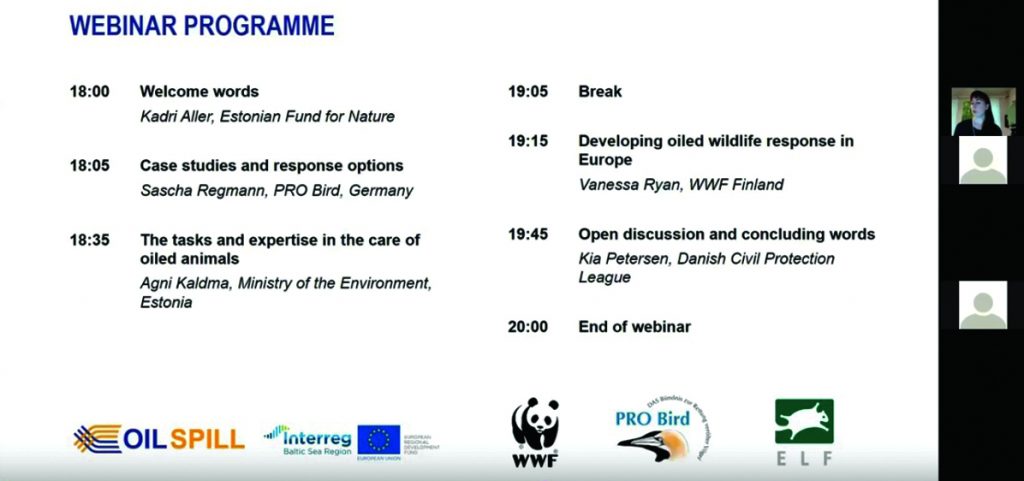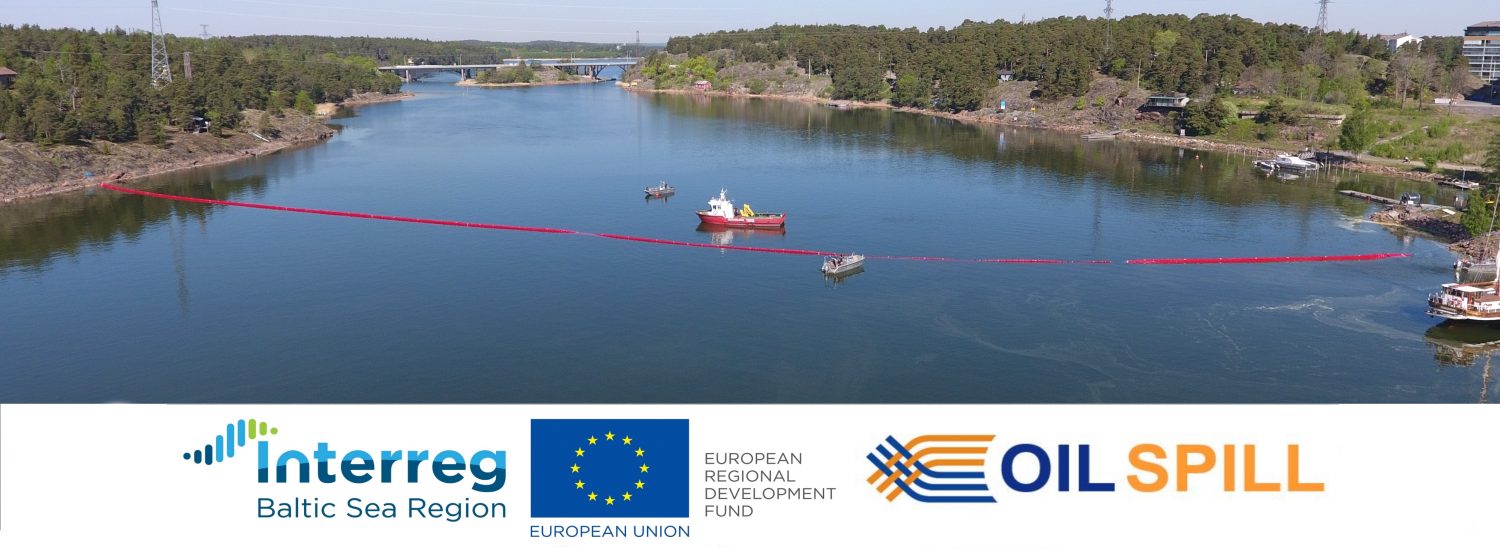Presentations at the ‘Oiled Wildlife Response – Methods and Opportunities’ Webinar

Written by Kadri Aller, Estonian Fund for Nature
On Wednesday evening, 31st March 2021, 30 participants from different Baltic Sea Region countries joined our webinar on oiled wildlife response. See the webinar recording, here, or download the presentations as pdf files at the end of this text.
It was my pleasure to welcome everyone to the event. The opening words were followed by Sascha Regmann’s (PRO Bird, Germany) presentation, which introduced case studies and response options from oil spill accidents in Germany, Spain, Norway and The Netherlands, accompanied by multiple photographs from the sites. As Sascha has personal experience in all of the aforementioned accidents, he was able to give a throughal overview of the mistakes made and proposals for amendments.
Have you ever thought about volunteering for oiled wildlife treatment? Agni Kaldma (Ministry of the Environment, Estonia) focused her presentation on the steps involved in caring for the oiled birds. She clarified which phases need expertise and what can be done by untrained volunteers. Note that washing the birds is not the only task and help is needed with food, logistics, technical issues, etc as well. Thus, there are numerous opportunities for the volunteers to join in.
Vanessa Ryan (WWF Finland) gave a thorough overview about developing oiled wildlife response in Europe. The presentation covered cooperation between NGOs and authorities, developing standards in training and accreditation, and various other fascinating subjects. The webinar was ended with a final discussion between the speakers and the participants, lead by Kia Friis Petersen (Danish Civil Protection League).
In case of an oil spill accident, the speed of the response is paramount. The more people are helping out, the more birds can be rehabilitated. Thus, the volunteers are essential in oil spill incidents. The webinar gave an introductory overview of different aspects involved in oiled wildlife response, including the tasks of volunteers. Therefore, I would recommend this webinar to anyone, who is interested in caring for the wildlife during oil spill incidents.
Download the presentations here:
- Sascha Regmann (PRO Bird, Germany): Case studies and response options
- Agni Kaldma (Ministry of the Environment, Estonia): The tasks and expertise in the care of oiled animals
- Vanessa Ryan (WWF Finland): Developing oiled wildlife response in Europe

Leave a Reply